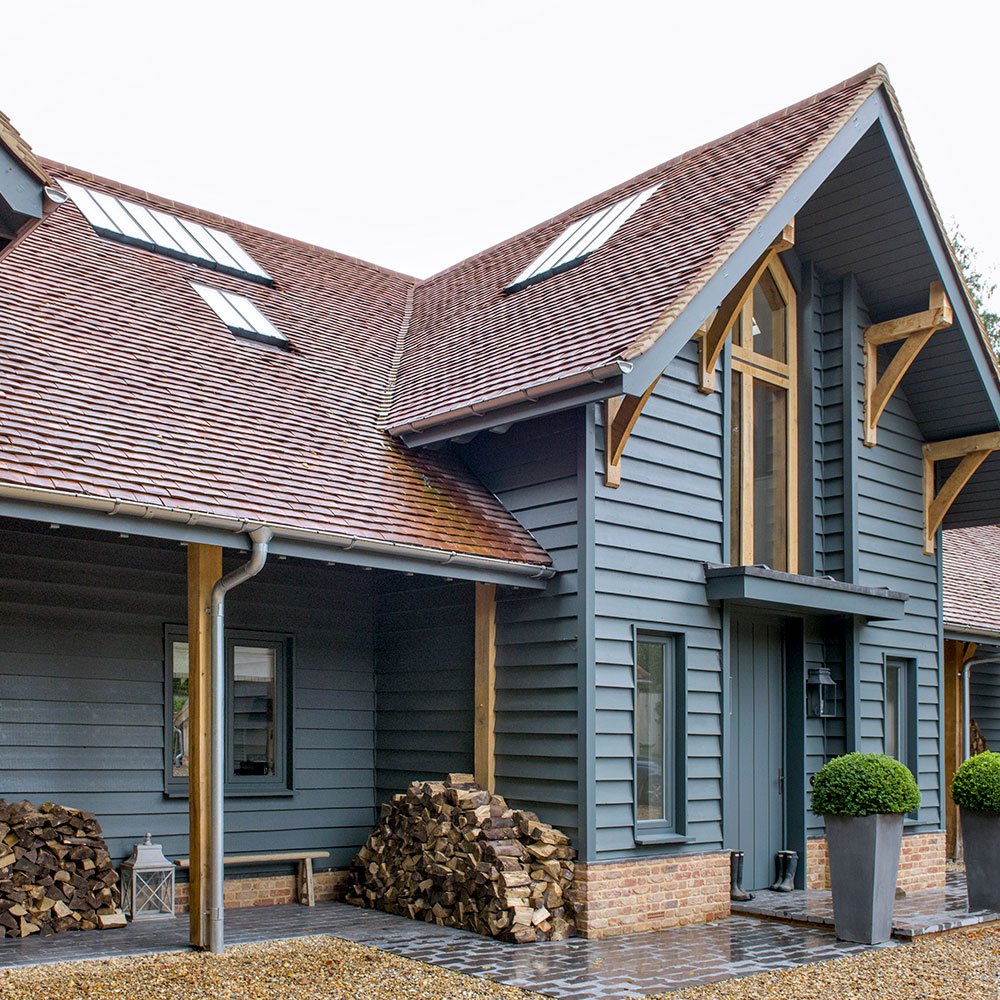Green mortgages explained
Lenders are rushing to launch 'green mortgages' but how do these deals work and will they reduce the cost of buying a more environmentally-friendly home?
Sign up to our newsletter for style inspiration, real homes, project and garden advice and shopping know-how
You are now subscribed
Your newsletter sign-up was successful
Green mortgages offer cheaper interest rates to borrowers who buy more energy-efficient properties. There’s nothing green about the loan itself, it won’t reduce your carbon footprint, but these mortgages do give you a financial incentive to purchase an energy-efficient home. And that has environmental benefits.
As David Hollingworth, associate director for communications at mortgage broker L&C Mortgages explains, green mortgages are fast becoming a staple of high street lenders’ product ranges.
'There has been an explosion in the range of green mortgages,” he says. “Many of the big mainstream lenders now have a version of their standard rates on offer with a green badge. Including Barclays, Halifax, Nationwide, NatWest and Virgin Money.'
What is a green mortgage and how does it work?
Green mortgages are typically based on the property’s Energy Performance Certificate (EPC). Every home sold must now be independently rated for its energy efficiency, scored from A at the top end down to G at the bottom.
Nick Mendes, mortgage technical manager at broker John Charcol explains: 'A green mortgage – sometimes referred to as an eco-mortgage – is a mortgage where you get a discounted interest rate and/or cashback if your home has an EPC rating of A or B, or your buy-to-let property has an EPC rating of C or above.'
The discount could be around 0.1 percentage points below non-green mortgage rates, while cashback offers can be between £350 and £999, he adds.

What is the eligibility criteria for a green mortgage?
The average EPC rate for property in the UK is D. This means that to qualify for a green mortgage you will most likely – but not always – need to be buying a new build home.
Sign up to our newsletter for style inspiration, real homes, project and garden advice and shopping know-how
By law, new builds must be constructed with energy efficiency measures incorporated, unlike older houses that may be poorly insulated and rely on old-fashioned heating systems.
Most lenders don’t exclude older properties from green mortgages, but their requirement for an EPC rating of A or B will rule out large chunks of the market.
Can I get a green mortgage on my existing home?
Many environmentally-minded owners of older houses would like to make their homes more energy efficient - and even if sustainability is not your priority, these measures can reduce your bills and help to keep your house warm. The good news is there are now some green loans aimed at this market too.
Hollingworth says: 'Lenders have recognised that existing properties will need to be improved as well and that their owners will need funds to help make those changes. Whether it’s installing insulation, double-glazing or a new, more efficient boiler.'
Nationwide Building Society, TSB and Skipton Building Society are among lenders that offer special rates on additional borrowing for borrowers making improvements to their home’s energy efficiency.
To take advantage of the Nationwide offer, for example, you need to already have a mortgage with the building society and agree to spend at least 50% of the money you borrow on energy-efficient projects. This could be anything from cavity wall insulation or new windows, to solar panels, small scale wind turbines, ground source heat pumps and electric car charging points.
Alternatively, specialist lender Kensington and the Saffron Building Society have taken a different tack, offering retrofit mortgages. This is where people moving home are incentivised to improve their home’s energy efficiency once they have moved in.
Kensington, for example, offers £1,000 cashback to borrowers who manage to improve their home’s energy efficiency within 12 months of their mortgage completion. Saffron rewards borrowers who make green home improvements during the first six months with a reduction to their mortgage rate.
Incentives like this can be particularly helpful if you have purchased an older or period property which is likely to have plenty of scope for improvement.
Do green mortgages save money?
With numerous lenders now offering cheaper deals to buyers of greener homes, there are some attractive mortgages available. But the rest of the mortgage market is competitive too; you may be able to find an even cheaper deal on ‘non-green’ terms.

Hollingworth says: 'It does make sense to shop around and not just head straight for a deal that has a green sticker applied. Those looking to make improvements should also consider if a standard product will be cheaper for them which would only help make their project more affordable.'
Still, over time, both new buyers and homeowners can expect to see more incentives from lenders to buy energy-efficient homes. Or to make improvements to their existing property.
Is a green mortgage a good idea?
The homes in which we live currently account for 22% of the UK’s carbon emissions according to the Royal Institute of Chartered Surveyors (RICs). The government has set an ambitious target to make sure all UK homes have an EPC of C or above by 2035.
The Department for Business, Energy and Industrial Strategy has also said that lenders can play a significant role in improving the energy efficiency of the UK’s homes.
'We will certainly see a time when green mortgages become more competitive,' says Mendes. 'With a two-tier system of green and non-green mortgages.'
One area he thinks lenders will also start to focus on more is the remortgage market. Although some lenders offer green remortgages now, numbers are limited. 'If you are able to show that you have improved your EPC during the time that you have lived in the property you could become eligible for a better rate when you remortgage.'
He adds: 'You may also be able to borrow more with a better EPC rating.'
Hollingworth agrees. 'Energy efficient homes aren’t just better for the environment; a big plus is that they are also cheaper to heat and run. It could even be possible for lenders to consider how the lower running costs of an energy efficient home could help homebuyers meet the affordability requirements,' he adds.
That’s a win-win situation. It could mean cheaper and more flexible lending deals for borrowers investing in measures that also have environmental benefits.